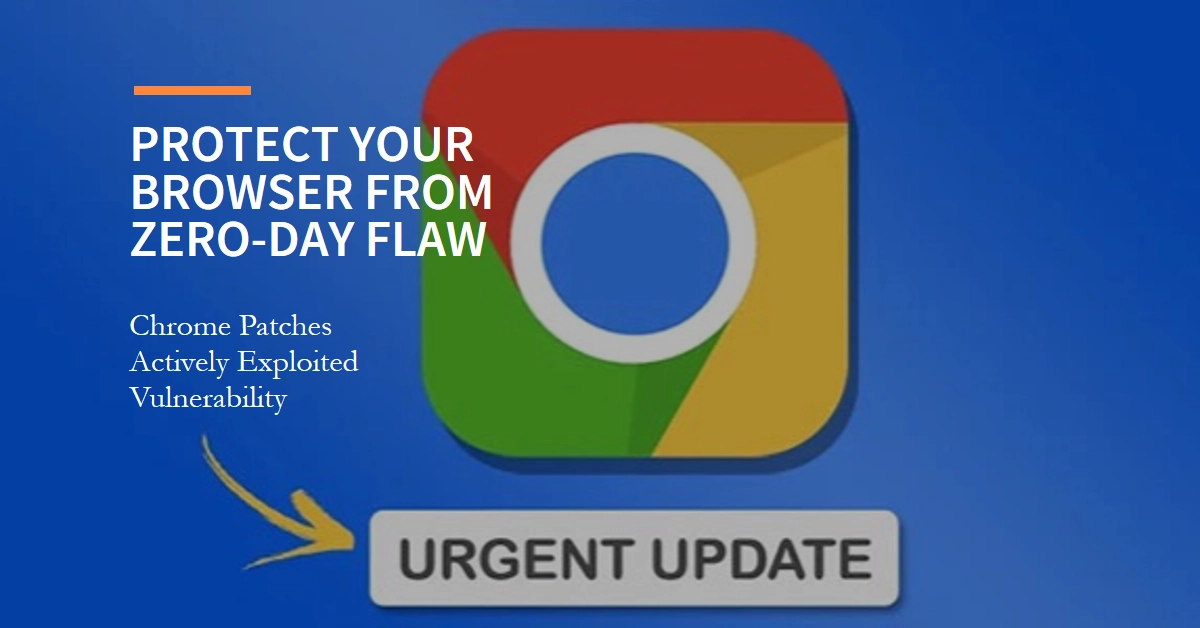Attention all Chrome users! Google has rushed out a crucial update for its popular web browser to address a recently discovered zero-day vulnerability – a security flaw exploited by attackers in the wild. This means your unprotected browsing habits could put your data and system at risk.
But fear not! We’ll guide you through everything you need to know about this urgent update and how to install it immediately.
Understand the Threat: What is a Zero-Day Vulnerability?
A zero-day vulnerability is a software flaw unknown to developers or security researchers and actively exploited by hackers before a patch is available. This makes them particularly dangerous, as attackers have a free-for-all until a fix is issued.
In this case, the Chrome zero-day, tracked as CVE-2024-0001, resides in the browser’s core rendering engine and can be triggered by visiting malicious websites or opening specially crafted files.
Why This Update is Critical: Potential Consequences
Exploiting this zero-day could allow attackers to gain remote code execution on your device. This essentially means taking control of your computer, opening doors to a range of malicious activities:
- Stealing your passwords, financial information, and other sensitive data.
- Installing malware and ransomware, further compromising your system and potentially locking you out of your files.
- Disrupting your browsing experience with unwanted ads and redirects.
- Launching attacks on other devices connected to your network.
The Urgent Need for Chrome Update: Why You Should Act Now
CVE-2024-0001 is a “zero-day” vulnerability, meaning there’s no existing patch and attackers are already exploiting it in the wild. This puts Chrome users at immediate risk of:
- Data theft: Attackers could steal your browsing history, passwords, login credentials, and even personal information.
- Malware infections: Malware could be injected into your system, giving attackers control over your device.
- System hijacking: In extreme cases, attackers could even hijack your entire system, causing widespread damage.
Google has kept the specific details of the vulnerability under wraps to prevent further exploitation. However, they’ve confirmed its critical nature and urged users to update immediately.
How to Update Chrome on Different Platforms: Don’t Be Left Behind!
Updating Chrome is simple and takes just a few minutes. Here’s how to do it on different platforms:
Windows:
- Open Chrome.
- Click the three dots in the top right corner and select “Help” > “About Chrome”.
- Chrome will automatically check for updates. If an update is available, it will start downloading and installing automatically.
- Once the update is downloaded, you’ll need to restart Chrome for it to take effect.
Mac:
- Open Chrome.
- Click on Chrome in the menu bar and select “About Google Chrome”.
- Chrome will automatically check for updates. If an update is available, it will download and install automatically.
- Once the update is downloaded, you’ll need to restart Chrome for it to take effect.
Linux:
- Open Chrome.
- Click the three dots in the top right corner and select “Settings” > “About Chrome”.
- Chrome will automatically check for updates. If an update is available, it will download and install automatically.
- Once the update is downloaded, you can close Chrome and it will automatically update itself the next time you open it.
Mobile Devices (Android and iOS):
Chrome updates are usually rolled out automatically on mobile devices. However, you can check for updates manually by:
- Android: Open the Google Play Store app and search for “Chrome”. If an update is available, it will be listed there.
- iOS: Open the App Store app and search for “Chrome”. If an update is available, it will be listed there.
Pro Tip: For added security, enable automatic updates in Chrome settings. This way, your browser will always be up-to-date with the latest security patches.
Additional Tips for Enhanced Security
While installing the update is crucial, consider these additional steps for comprehensive protection:
- Enable automatic updates: This ensures you always have the latest security patches.
- Use strong passwords and two-factor authentication: Harden your online accounts against unauthorized access.
- Beware of suspicious websites and links: Don’t click on anything that seems untrustworthy.
- Keep your operating system and other software up-to-date: Vulnerabilities in other programs can also be exploited.
- Consider security extensions: Use reputable extensions like ad blockers and anti-malware tools.
By taking these steps, you can significantly reduce the risk of falling victim to this zero-day attack and remain safe while browsing the web. Remember, online security is an ongoing process, not a one-time fix. Stay vigilant, keep your software updated, and enjoy your online adventures with peace of mind!
